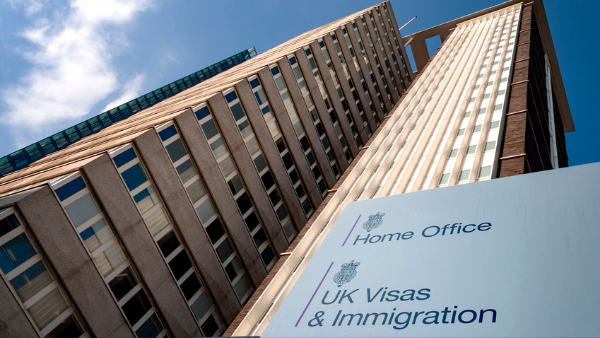Author
In 2021, the United Kingdom Home Office took steps to review all Tier 1 investor visas granted before April 2015 due to security concerns. Findings of the review will be published in due course, but Priti Patel has noted that:
“I have zero tolerance for abuse of our immigration system. Under my New Plan for Immigration, I want to ensure the British people have confidence in the system, including stopping corrupt elites who threaten our national security and push dirty money around our cities. Closing this route is just the start of our renewed crackdown on fraud and illicit finance. We will be publishing a fraud action plan, while the forthcoming Economic Crime Bill will crack down on people abusing our financial institutions and better protect the taxpayer.”
Summary of the Investor Visa
The Investor visa route was a category for wealthy individuals seeking to make a significant financial investment in the UK. To qualify for this category, applicants needed to be able to show that they had:
- not less than £2 million under their control in a regulated financial institution and disposable in the UK;
- the money for two consecutive years or provide detailed documentation of its source; and
- opened an account with a UK-regulated bank for the purposes of investing not less than £2 million.
Generally speaking, within 3 months of first entering the UK as a Tier 1 Investor migrant, the applicant was required to invest the £2 million in either share capital or loan capital in an active and trading UK registered company (a ‘qualifying investment’). This investment then had to be maintained for the duration of their investor visa (subject to limited exceptions).
Closure
The Home Office has been reviewing the merits of the Investor visa programme for some time due to concerns that the route afforded unscrupulous individuals the opportunity to move and launder “dirty money“.
In addition, there has also been questions surrounding how beneficial the route actually is to UK companies. In 2018, the ONS noted that 54.9% of UK shares in quoted UK domiciled companies listed on the London Stock Exchange were beneficially held by owners outside of the UK. As such, arguably, investments into a large proportion of these shares were not directly benefiting UK beneficiaries.
The immediate closure of the route, however, was entirely unexpected by those practicing in immigration law and has been met with frustration and anger. Many investors in the throws of applying for the investor visa have been caught off guard and are now being forced to explore alternative, less flexible, routes into the UK. The Immigration Law Practitioners Association (ILPA) has written to the Home Office to challenge the decision to close the route without any advance warning, but this is not expected to have any material impact on the route’s closure.
Alternatives?
The Home Office has announced that it will be making reforms to the Innovator route, part of the new points-based immigration system, to provide an “ambitious investment route which works more effectively in support of the UK’s economy“.
Another alternative is the Global Talent Visa, which is designed for highly-skilled individuals in the fields of science, humanities, engineering, medicine, digital technology or the arts (including film and television, fashion design and architecture) who will “enrich the United Kingdom’s knowledge, economy and cultural life“.
The route is divided into two types of applicants:
- “Talent” applications, for those who are already leaders in their field; and
- “Promise” applicants who show the potential to become leaders in their field.
Any applicant will require endorsement from an organisation recognised by the Home Office. These are The Royal Society, The Royal Academy of Engineering, The British Academy, Arts Council England, TechNation and UK Research and Innovation (UKRI).
The Home Office has issued detailed guidance as to the level of achievement, which an individual must show, and each recognised organisation has developed sector-specific criteria (upon which they will assess applicants) in the light of this. In each case, the individual will need a substantial body of work and support from experts in their field. For example, as part of their application, they will not only need to submit their application form, CV and personal statement, but will also likely require up to three reference letters and ten supporting documents. This route is particularly competitive and approximately only 50% of applicants will be successfully endorsed. Applicants therefore need to be prepared to invest a considerable amount of time in their application to ensure that it is as strong as possible.
If successfully endorsed by a recognised organisation, the individual must then apply to the Home Office for their visa, and it will be for them to make the final decision as to whether to award a visa under this route.
The visa itself will enable an individual to live and work in the UK for up to 5 years and 4 months. It is considered to be the “golden ticket” of all visas as, once approved, an individual is given a highly flexible permission to live and work in the UK. For example, enabling them to be employed or self-employed, to change jobs without informing the Home Office, to travel abroad and return to the UK for research purposes etc. In most cases, this visa also provides for fast-track settlement for the individual (and their dependants) after only 3 years and is therefore a very quick route to settlement.
Key Take Away
The Investor visa route is now closed, and no new applications will be considered by the Home Office. There is no expectation that this route will re-open in the near future. The Home Office intends to revise existing visa routes to make them more accessible for investors, however, these routes are likely to be more restrictive than the now closed Investor visa route. Timescales for these new revised routes being launched is currently unclear. Anyone therefore looking to move to the UK to live and/or work in the coming months, must now consider alternative immigration routes in order to successfully make the transition to the UK.

